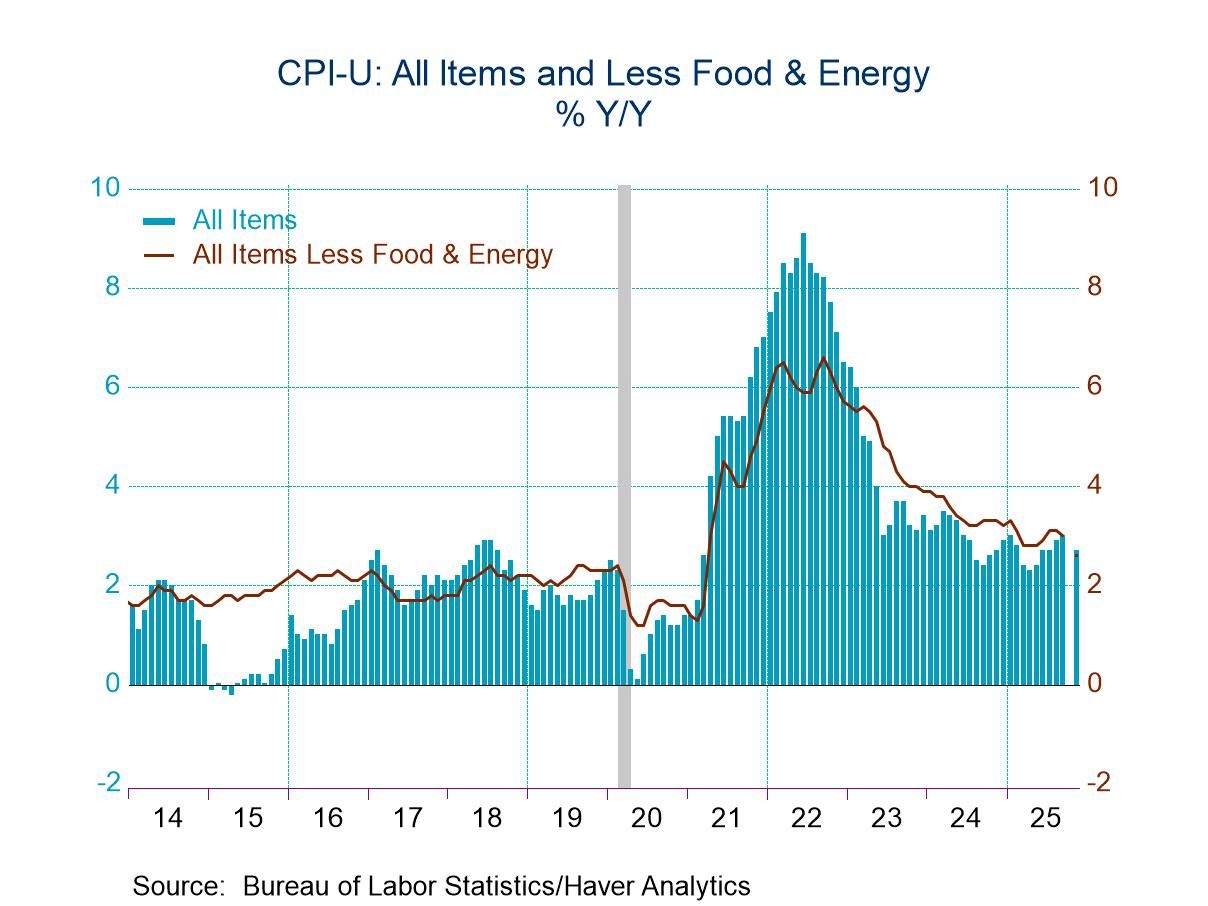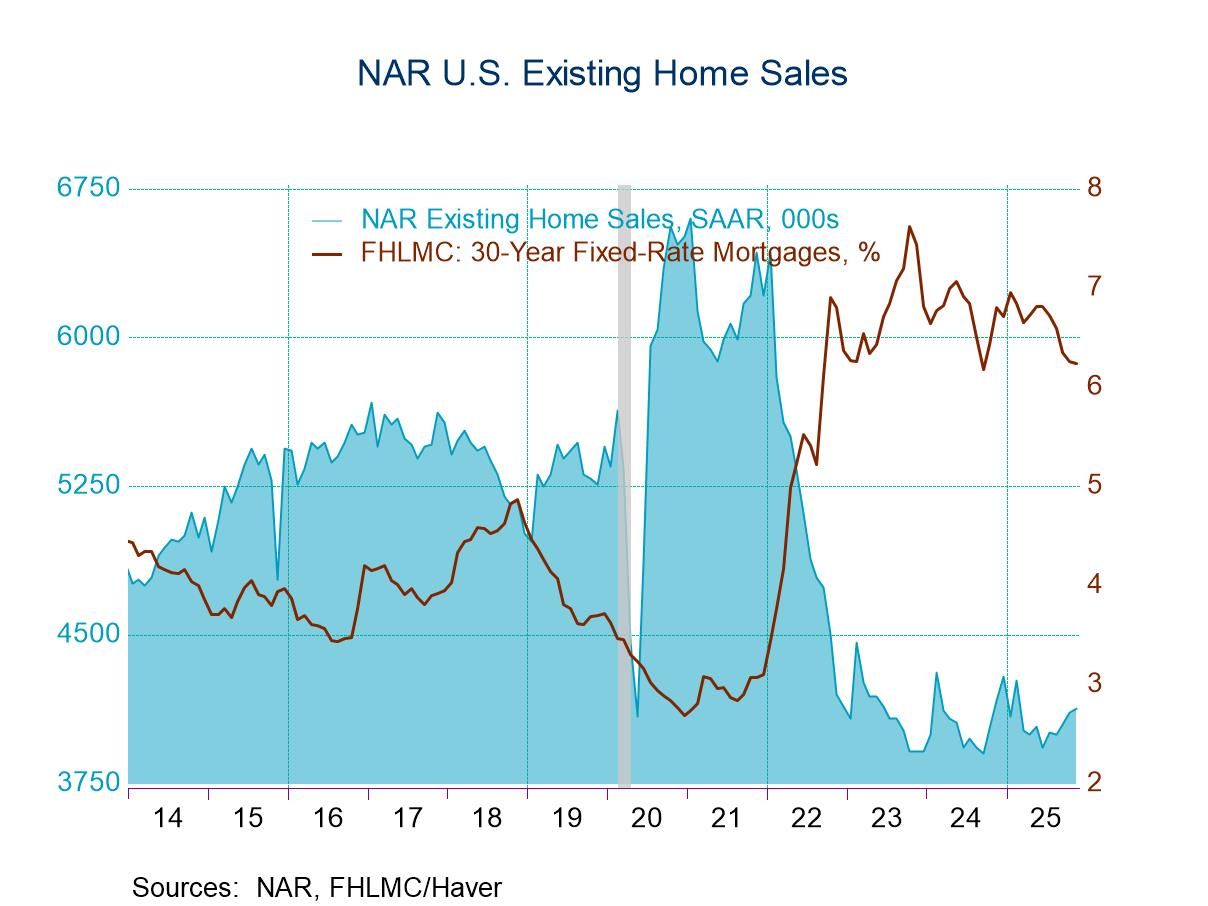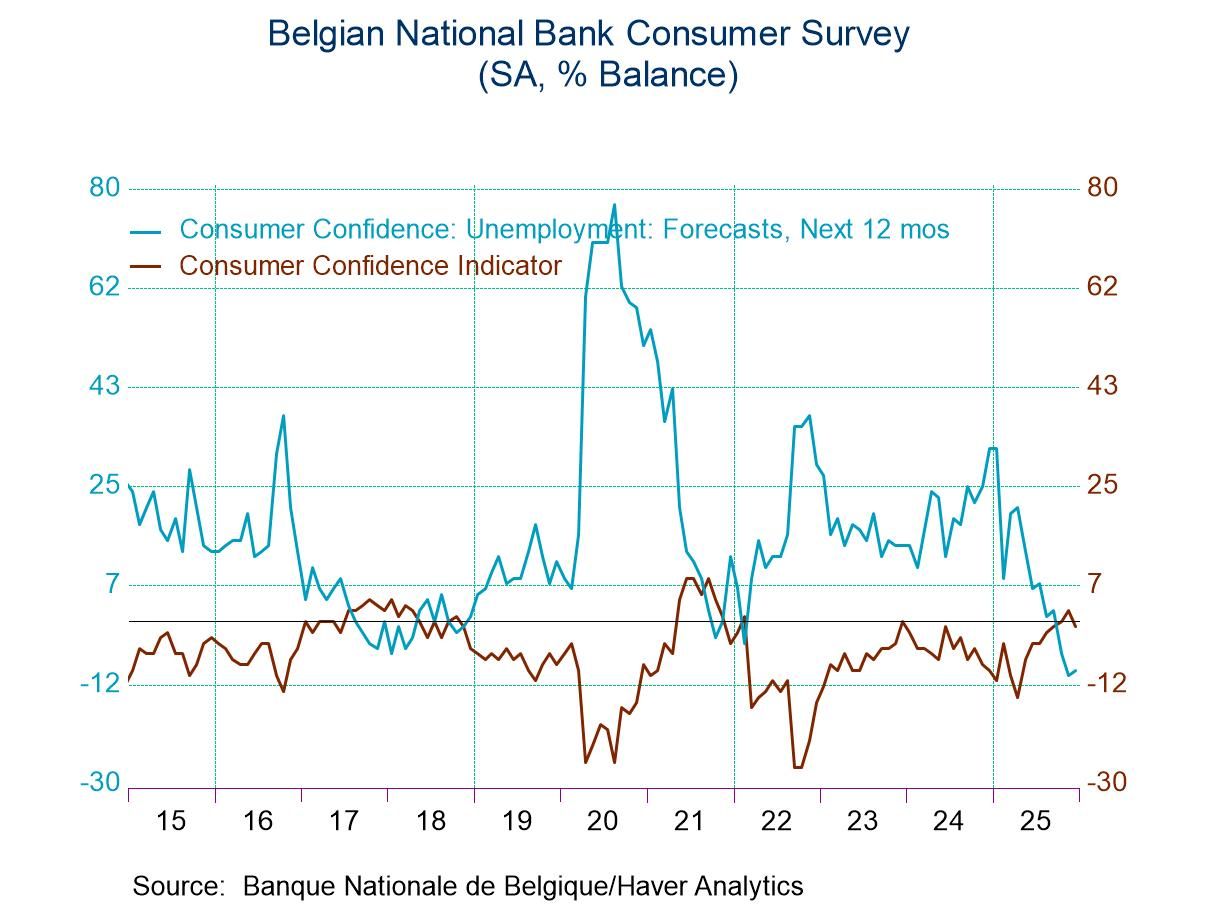 Global| Sep 03 2015
Global| Sep 03 2015Euro Area Total Private PMI Gauge Moves Higher
Summary
The EMU PMI rose to 54.3 in August from 53.9 in July. The sequential PMI averages show a steady but very slow upward march in the EMU total PMI. The current August manufacturing PMI is still below the three-month average. [...]
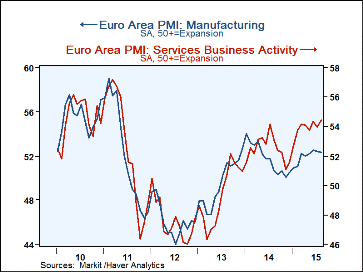 The EMU PMI rose to 54.3 in August from 53.9 in July. The sequential PMI averages show a steady but very slow upward march in the EMU total PMI. The current August manufacturing PMI is still below the three-month average. Manufacturing remains a problem for the EMU. Its PMI level is still positive, but its rank standing is only in its 63rd percentile, a very moderate standing. The EMU is being powered by its services sector. The services PMI gauge moved up in August to 54.4 from 54 in July. Its sequential PMI averages are steadily, but slowly, moving higher. The August services PMI gauge is just a tick above its three-month average.
The EMU PMI rose to 54.3 in August from 53.9 in July. The sequential PMI averages show a steady but very slow upward march in the EMU total PMI. The current August manufacturing PMI is still below the three-month average. Manufacturing remains a problem for the EMU. Its PMI level is still positive, but its rank standing is only in its 63rd percentile, a very moderate standing. The EMU is being powered by its services sector. The services PMI gauge moved up in August to 54.4 from 54 in July. Its sequential PMI averages are steadily, but slowly, moving higher. The August services PMI gauge is just a tick above its three-month average.
Germany is a bit of a mixed case. Its total PMI gauge moved up strongly to 55.0 in August from 53.7 in July. But its three-month average PMI is still only flat with its six-month gauge. Has Germany reignited or is it stagnating? Germany's manufacturing sector rose sharply in August too. Its PMI gauges, separately, are on slow rise. Services' sequential averages are also moving higher but only at an extremely weak pace (as weak as possible to still be improving!). And, the services sector also showed a sharp jump in August.
Germany is the place to watch. These new strong signs of life in both sectors in August are something we have not seen there for some time. The German manufacturing gauge is only at its 64th percentile. Services are a bit firmer with a standing in their 70.6 percentile.
France had a bad month. Its overall PMI fell on weakness in manufacturing and services. Still, the French moving averages are headed higher; manufacturing shows steady increases in its PMI average from 12-month to six-month to three-month. But French services have stalled as their three-month average is only even with its six-month average. The total French gauge stands only at its 50th percentile of its historic rank. Manufacturing's standing is at an extremely weak 35th percentile. Services stand in their 51.5 percentile.
Italy and Spain each show total PMIs that moved up solidly in August. Their PMI standings are in the 90th percentile for both - very strong standings. Relative to their respective histories, Italy and Spain are doing the best among the EMU big-four economies. Italy has a raw diffusion gauge value that is the same as Germany's; Spain's raw value is higher. However, the strong relative ranks for Italy and Spain (rank standings) simply reflect that their economies have not been used to posting numbers this good.
While the EMU did improve in the month, it is moving up only slowly. There is not much momentum there. That makes its revival still fragile. The set back to France is worrying. But Italy and Spain are responding well to their enforced austerity. The EMU continues to be led by its services sector not by its goods sector despite the fact that the weak euro should give the manufacturing sector an extra edge that services just don't get. Judging from Mario Draghi's comments today, it looks like the ECB is going to keep the weak euro in play and try to revive manufacturing.
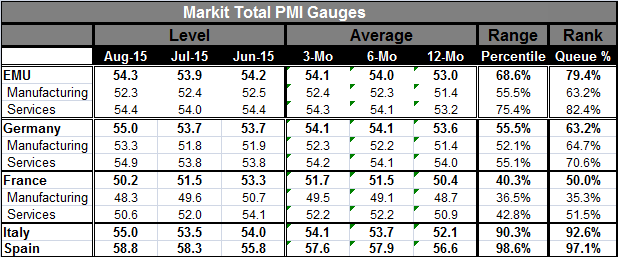
Robert Brusca
AuthorMore in Author Profile »Robert A. Brusca is Chief Economist of Fact and Opinion Economics, a consulting firm he founded in Manhattan. He has been an economist on Wall Street for over 25 years. He has visited central banking and large institutional clients in over 30 countries in his career as an economist. Mr. Brusca was a Divisional Research Chief at the Federal Reserve Bank of NY (Chief of the International Financial markets Division), a Fed Watcher at Irving Trust and Chief Economist at Nikko Securities International. He is widely quoted and appears in various media. Mr. Brusca holds an MA and Ph.D. in economics from Michigan State University and a BA in Economics from the University of Michigan. His research pursues his strong interests in non aligned policy economics as well as international economics. FAO Economics’ research targets investors to assist them in making better investment decisions in stocks, bonds and in a variety of international assets. The company does not manage money and has no conflicts in giving economic advice.



